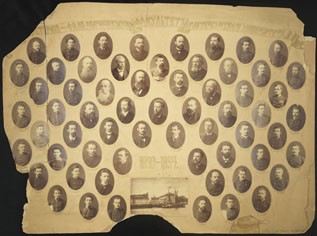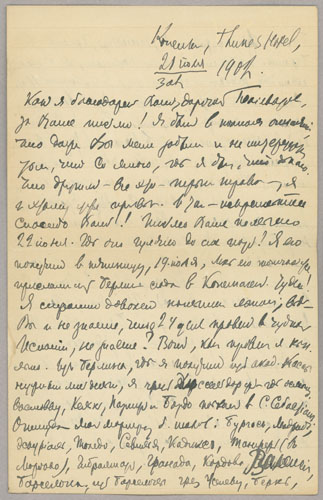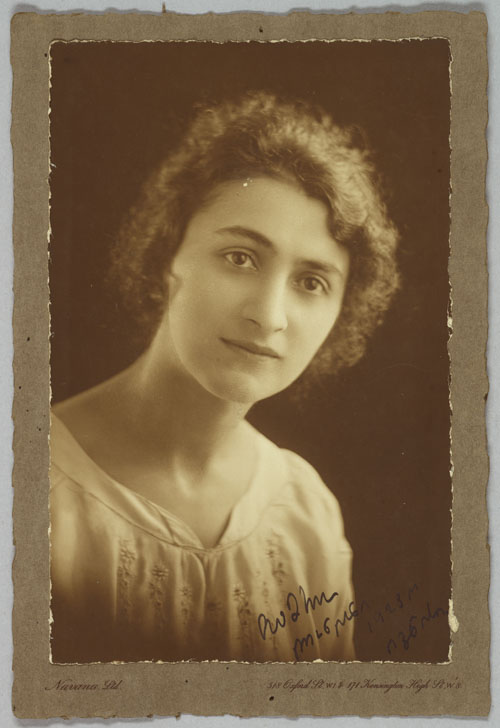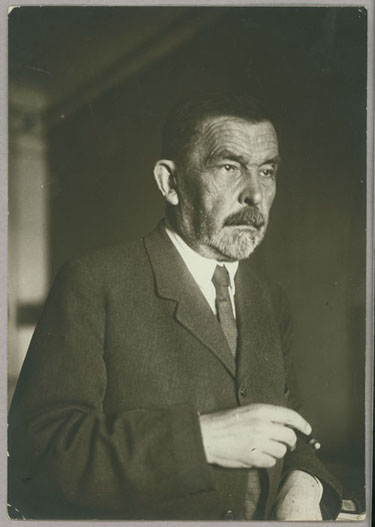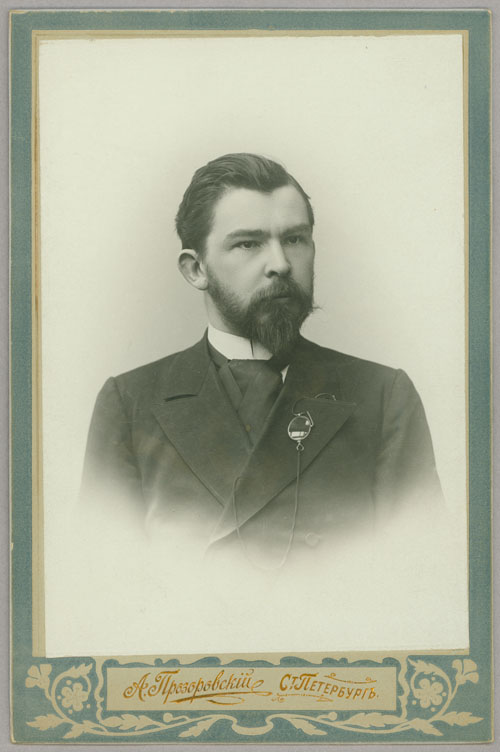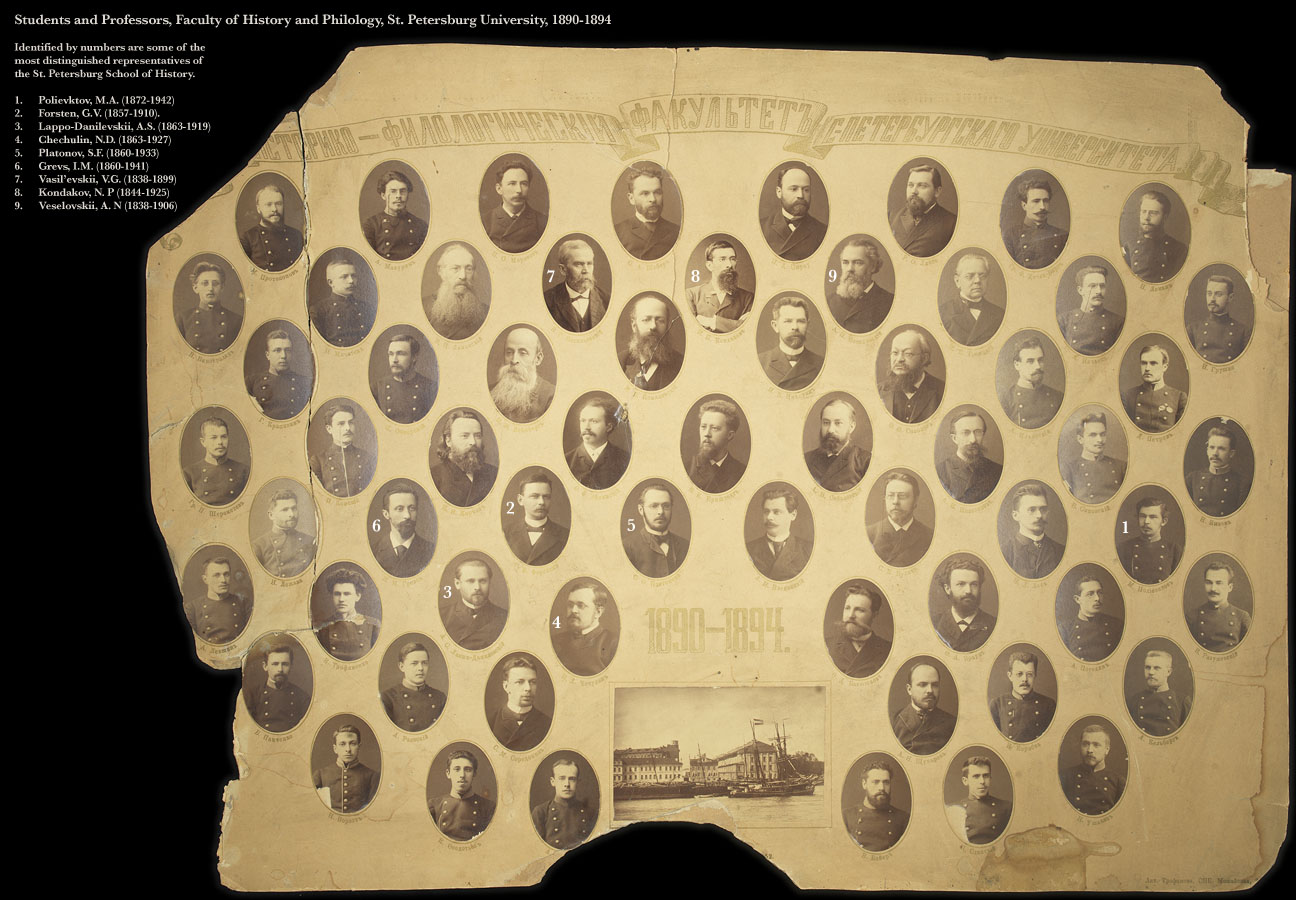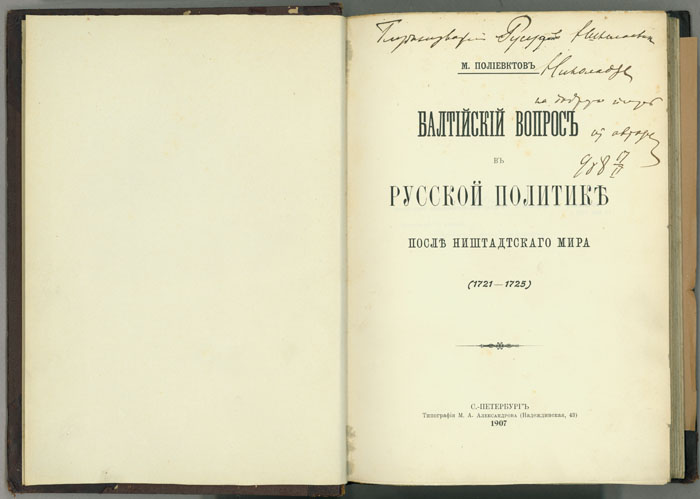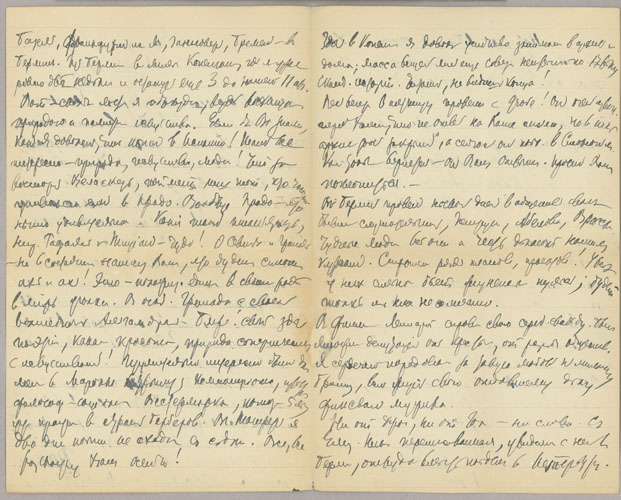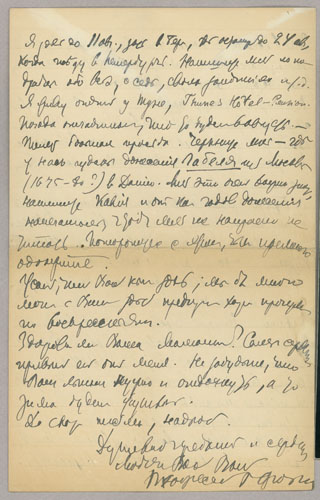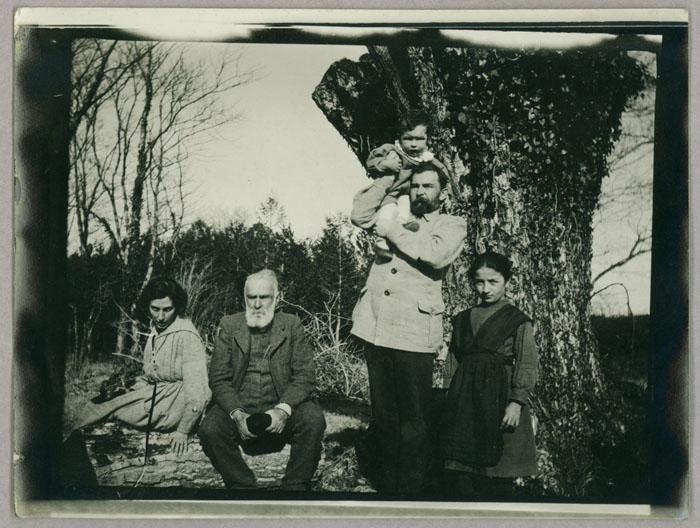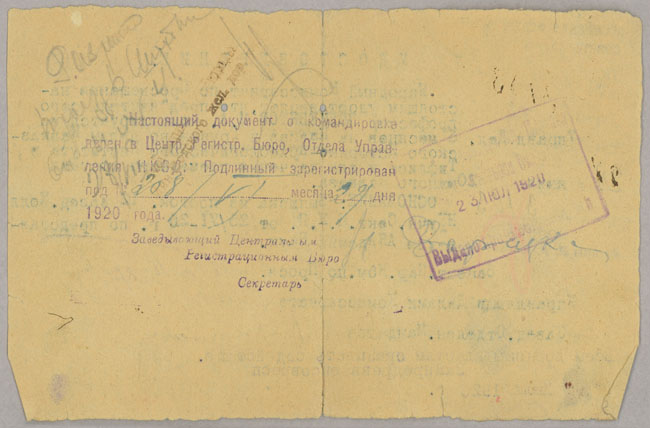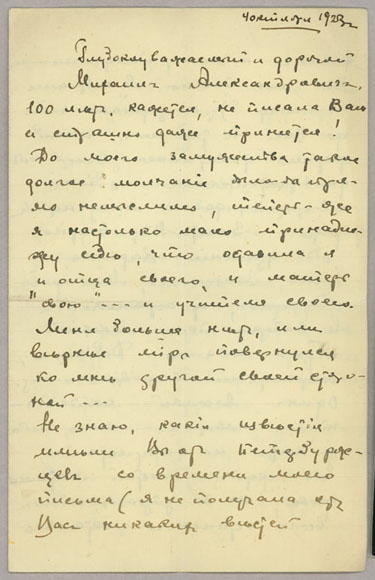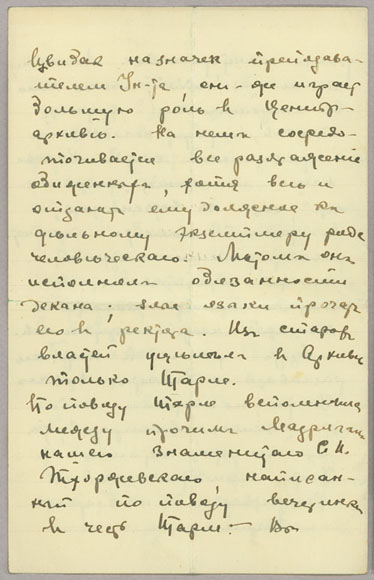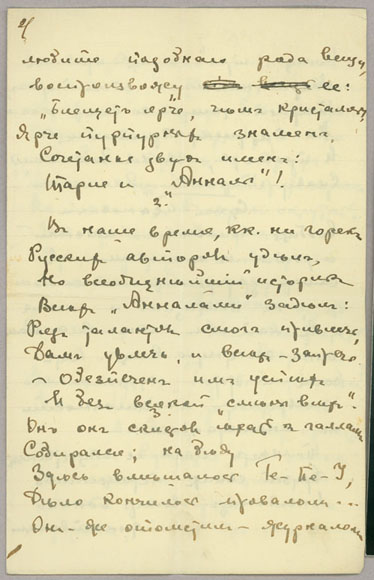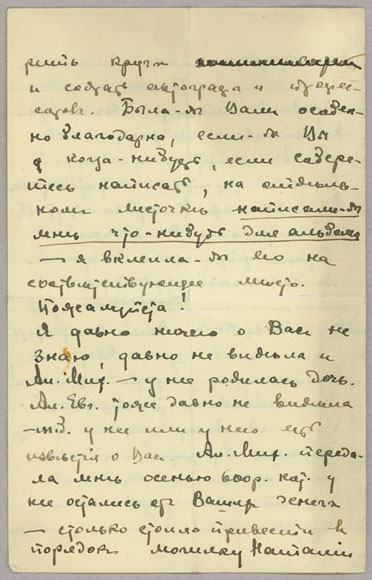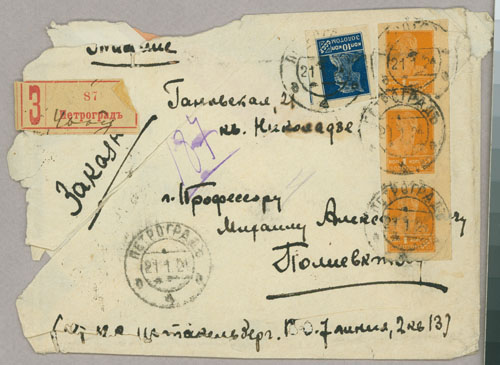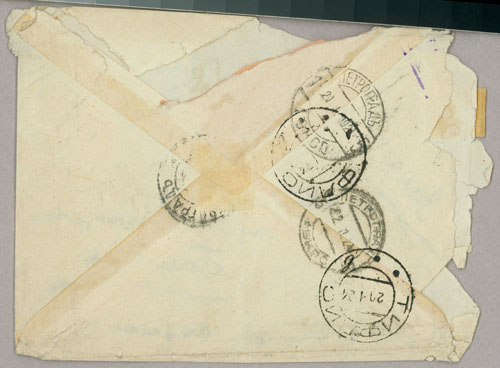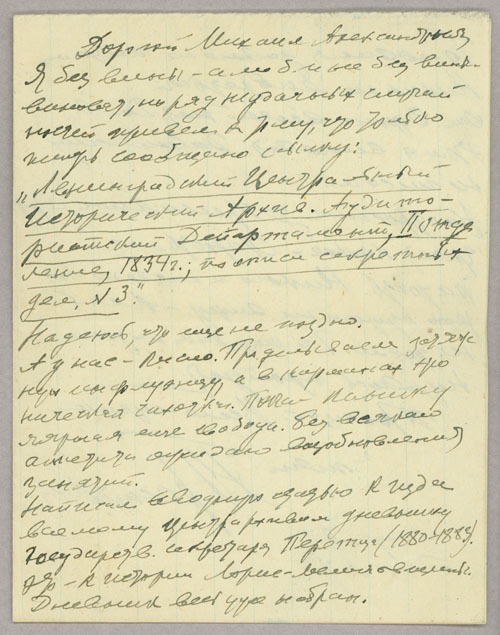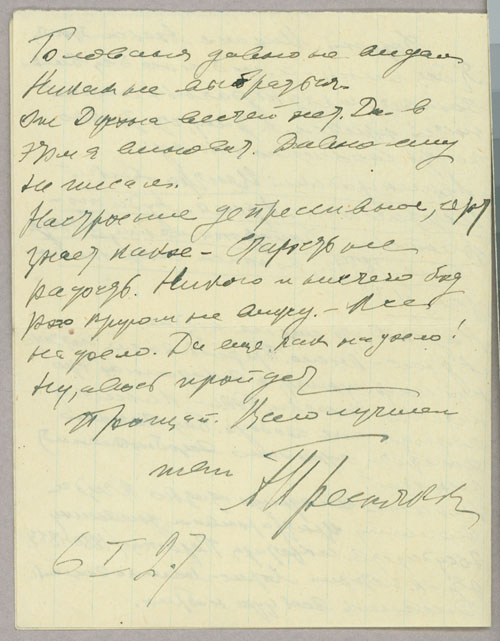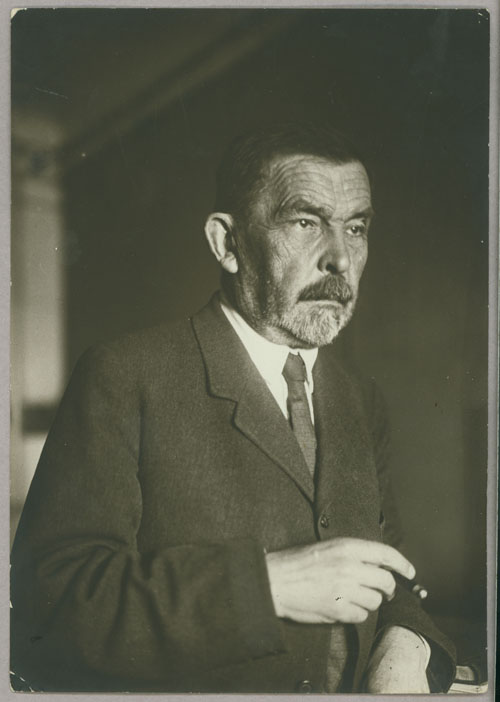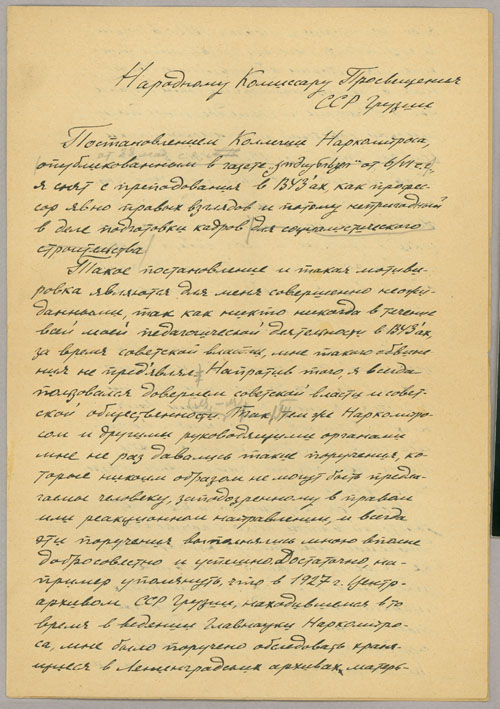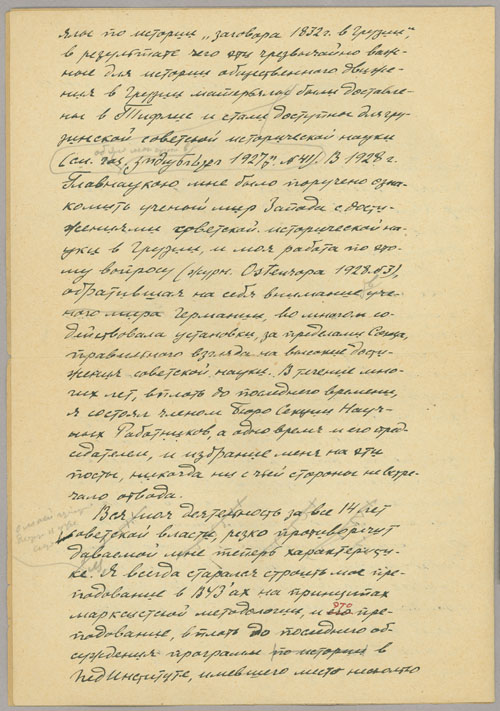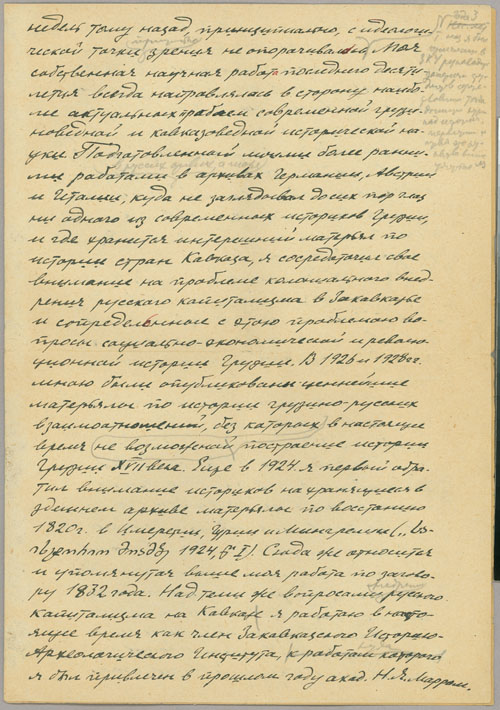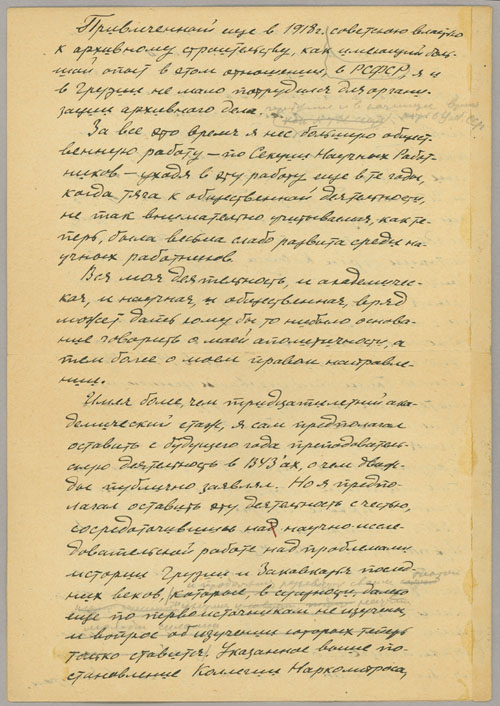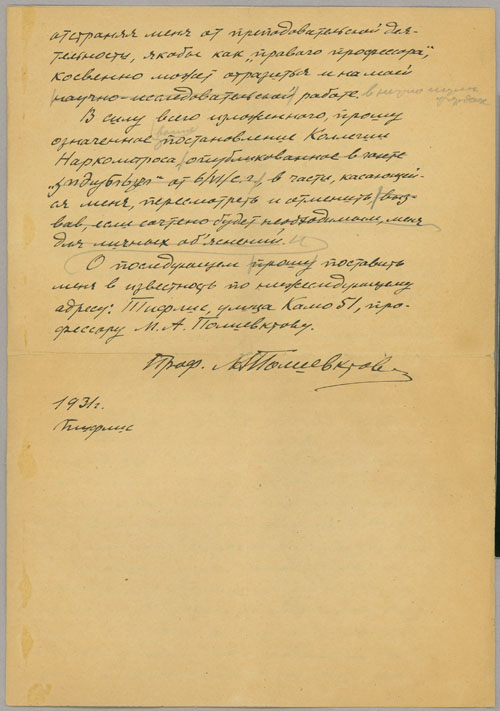Mikhail Aleksandrovich Polievktov, 1872-1942
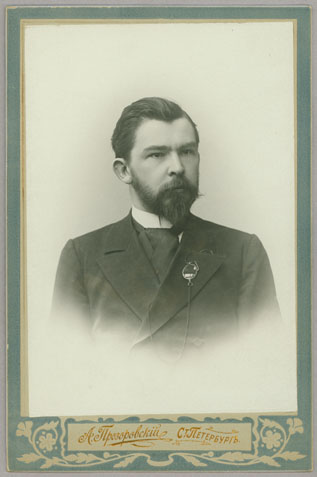
Portrait photograph of Mikhail Aleksandrovich Polievktov, ca 1915
Mikhail Aleksandrovich Polievktov was a prominent representative of the great St. Petersburg school of Russian historians.
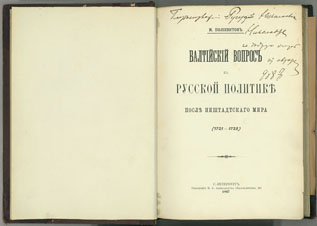
Signed copy of Polievktov’s first monograph--“Baltiiskii vopros v Russkoi Politike posle Nishtadskago Mira: 1721-1725” (St. Petersburg: Tipografiia M.A. Aleksandrova, 1907). Baltic question in Russian Foreign Policy after the Treaty of Nystad, 1721-1725. Author’s inscription: “To the most respected Rusudana Nikolaevna Nikoladze for good memory from the author. February 17, 1908."
This is Polievktov’s Magister’s (Master’s) dissertation on Russia’s foreign policy in the aftermath of the Great Northern War written under the supervision of Professor S.F. Platonov (1860-1933). His second reader and mentor was Professor G.V. Forsten (1857-1910), a specialist on foreign relations and modern European and Scandinavian history. Forsten inspired Polievktov’s choice of topic for this book.
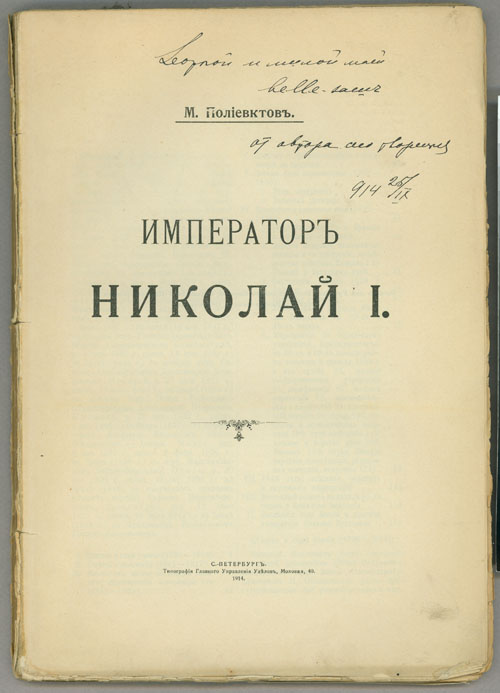
Signed copy of Polievktov’s best known monograph - Imperator Nikolai I (St. Petersburg: Tipografiia Glavnogo upravleniia udelov, Mokhovaia 40, 1914). Emperor Nicholas I (St. Petersburg: Printing House of the Chief Administration of Principalities, 1914) Limited Edition. 165 pages. Author’s inscription: “To my dear and charming sister-in-law [Tamara Nikoladze] from the author of this creation. September 25, 1914”.
This is a very rare edition of Polievktov’s best known monograph on Nicholas I and his reign. It was originally written for the Biographical Dictionary of the Imperial Russian Historical Society, but was left out of the intended eighth volume for a variety of last-minute editorial and technical reasons. Over the next two years Polievktov significantly expanded his work to examine the most important policies and institutions of Nicholas’ reign in the context of the tsar’s personality as well as his personal and educational background. In 1918 Polievktov published his expanded 390-pages study of Nicholas I’s reign, which is still considered the standard work on the subject. The most recent edition of the book came out in Moscow in 2008.
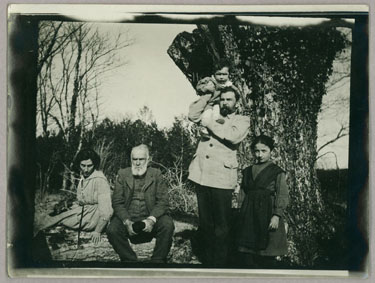
Photograph of members of the Polievktov-Nikoladze Family. Didi Dzhikhaishi, Georgia. Ca. Fall, 1917.
From left to right: Rusudana Nikoladze (Polievktov’s wife); Niko Nikoladze (Polievktov’s father-in-law); Nika Polievktov-Nikoladze (son); and unknown schoolgirl (likely a student of Rusudana’s at the time).
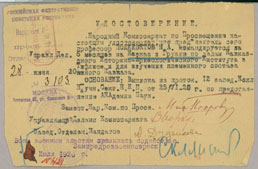
Certificate of Permission for Polievktov’s research trip to (then independent) Georgia. June 28, 1920.
In the summer of 1920, Polievktov’s personal life and career took a decisive turn. Following the death of his mother Polievktov left Petrograd and reunited with his wife Rusudana and their five-year old son Nika, who had departed the city three years earlier hoping to wait out the revolutionary turmoil in the safety of her family’s estate in Didi Dzhikhaishi in western Georgia. Polievktov would spend the rest of his life in Georgia making regular, if relatively short, visits to archives and libraries in Moscow and Leningrad.
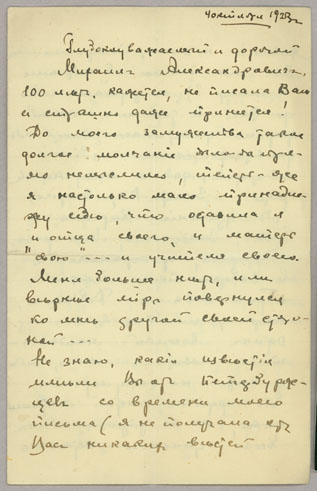
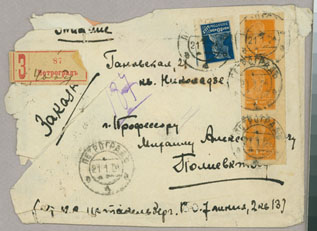
Letter to Polievktov in Tiflis from Natal’ia Sergeevna Shtakel’berg (née Egorova-Gurskaia, 1897-1978) in Petrograd. October 4, 1923.
During his 22 years in academically provincial Tbilisi Polievktov continued to correspond with his colleagues, students, and friends in Petrograd. This is a letter from his former Petrograd University student and confidant N.S. Shtakel’berg, who writes about recent dramatic changes at the University imposed by the Communist authorities.
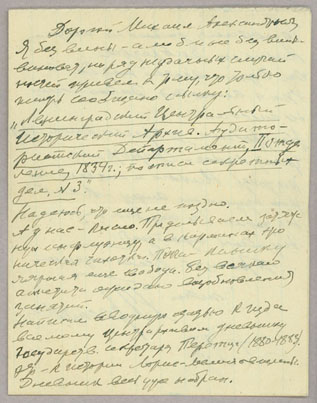
Letter to Polievktov in Tiflis from A.E. Presniakov in Leningrad, January 6, 1927
In this unusually frank letter the famous Russian historian Aleksandr Evgen’evich Presniakov (1870-1929) writes to his life-long friend on his frustrations and declining health (he would die of cancer two years later). Perhaps, more importantly, this letter reflects the depressive mood in the Leningrad academic circles on the eve of the purges of prerevolutionary historians in the infamous “Platonov affair”. Presniakov mentions his and Polievktov’s peers and close friends, the neo-Kantian philosopher and logician Ivan Ivanovich Lapshin (1870-1952), and the art historian Vladimir Aleksandrovich Golovan’ (1870-1942). Lapshin (called John by Presniakov) was expelled from Soviet Russia in 1922 and at the time of this letter lived in Prague. Golovan’ lived in Leningrad and worked at the State Hermitage Museum.
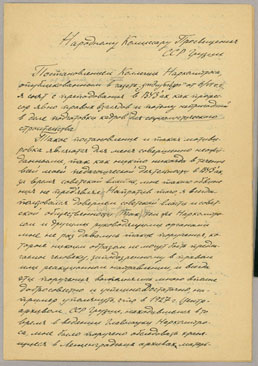
Appeal from Polievktov to the People’s Commissar of Enlightenment of the Georgian SSR, 1931
Having lost his teaching positions in 1931 because of accusations in a Tbilisi Communist newspaper, Polievktov wrote an appeal to the local Soviet authorities and was soon reinstated. This is a draft of the appeal in Polievktov’s hand. It is written in pen, with corrections in pencil
